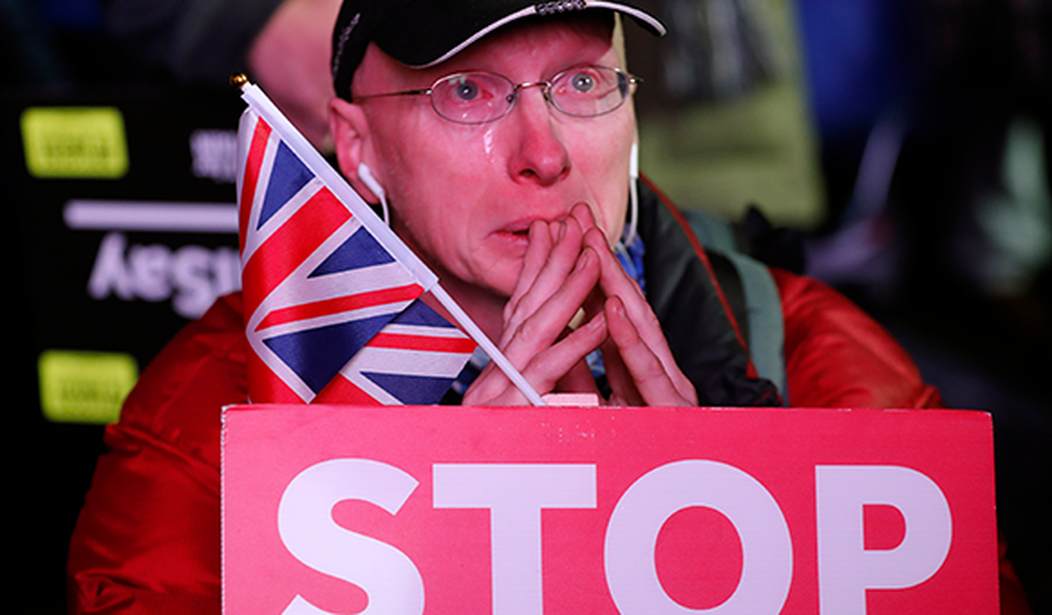The great debates of our time are not exclusively those hard-hitting ones affecting human anthropology and political community -- how many genders exist, what criteria we should look for in prospective immigrants, and so forth. Certainly, many of our most notable debates do implicate those most foundational rifts. But some of our other most politically urgent and galvanizing disputes revolve less around substantive questions, such as the nature of justice, than they do around one of the oldest procedural questions in the history of political science: "Who decides?"
A look around the world at this present juncture suggests an emerging consensus: We the people, through our own internal deliberations and our own political processes, should decide the fate of our own nation-states. Recent or ongoing examples in Hungary, France, Ukraine, and Israel are all instructive. For political actors paying attention here on the American homefront, there are clear and compelling lessons to take away.
In Hungary, last Sunday, Prime Minister Viktor Orban, who had been facing relatively tight polling in the lead-up to the national election, cruised to a fourth term. Orban's defiant national conservative Fidesz party utterly dominated the unified opposition, which had included everyone from outright communists to full-on antisemitic fascists in a ham-fisted -- and ultimately ill-fated -- attempt to topple the government. Fidesz was wildly successful everywhere outside Budapest itself, and even gained seats in the parliament -- this despite the sustained, yearslong campaign to decry Hungary's alleged "democratic backsliding" from The New York Times, George Soros-funded nongovernmental organizations and the other usual suspects.
The key lesson from Hungary: A proud nationhood is one that fights to secure its customs, folkways, and traditions from the overweening, heavy hand of the liberal imperium (here, the Brussels-based European Union).
In France, the world's seventh-largest economy and an anchor of the modern European integration project, current polling for the presidential runoff election that will follow this Sunday's initial round of voting is genuinely eye-opening. According to an Atlas Politico poll from April 4 through April 6, President Emmanuel Macron, who despite his occasional anti-woke musings is pro-European integration and firmly center-left, finds himself in a political dogfight. Per Atlas Politico, in a runoff election between Macron and his most likely challenger, the right-wing Euroskeptic Marine Le Pen, Le Pen leads by the shockingly small margin of 50.5% to 49.5%. Le Pen has likely benefited from the Overton window-shifting effect of Eric Zemmour's own further-right-wing presidential run, which has had the effect of normalizing Le Pen.
Recommended
The key lesson from France: The liberal imperium faces an existential threat. Aside from Germany, there is no more important EU nation than France. A more humble liberal imperium would acknowledge there is nothing wrong whatsoever with national pride.
In Ukraine, local forces have fought Russian invaders over the past month and a half to a seeming stalemate. This is despite the fact the Russian military is orders of magnitude larger and more powerful, and despite the fact that premier Vladimir Putin has long coveted reincorporating Ukraine, Soviet-style, into "Greater Russia." Whatever one thinks of greater American and NATO involvement in the Ukrainian theater -- and I have been vocally opposed to escalation -- the reality is that the Ukrainian people's defense of their own nation-state has (with some notable exceptions) been inspiring. Ukrainians have successfully rallied in defense of home and hearth in a way that few would have been able to anticipate prior to Putin's invasion.
The key lesson from Ukraine: The interdependent bonds of mutual loyalty that tie together a particular people, such as commonality of language, heritage, and general mannerisms, can lead to extraordinary things amidst the intense threat of revanchism.
Finally, in Israel this week, a member of Knesset Idit Silman formally left Prime Minister Naftali Bennett's ragtag governing coalition, which had been comprised of a bare 61-59 parliamentary majority. Silman's departure means the Knesset is now split evenly 60-60, and the coalition will require at least one vote from the Likud/Benjamin Netanyahu-led opposition to advance any legislation. Bennett's coalition, which consists of everyone from purported right-wing Zionists (such as Bennett himself) to Muslim Brotherhood-aligned anti-Zionists such as Mansour Abbas, was always extraordinarily fragile. Crucially, due to the coalition's presence of Abbas' Ra'am party, the erstwhile national conservative Bennett permitted anti-Zionists to thwart the Israeli national interest on core issues, such as the Iranian nuclear threat and the territorial dispute over Judea and Samaria.
The key lesson from Israel: A proud, self-governing people will only tolerate for so long a parliamentary (or congressional) coalition in which subversive fifth column actors, perhaps in cahoots with external NGOs, wield veto power.
Looking back at the 2016 tidal wave of the United Kingdom's dramatic "Brexit" and the dramatic election of President Donald Trump, and continuing through today, the great sovereignty reclamation movement is alive and thriving. For Americans who seek forward-looking inspiration, the lesson is simple: The nation-state, and the tangible flourishing of the nation-state's people, must always come first. There is no more important lesson for a decadent, late-stage republic to imbibe.

























Join the conversation as a VIP Member